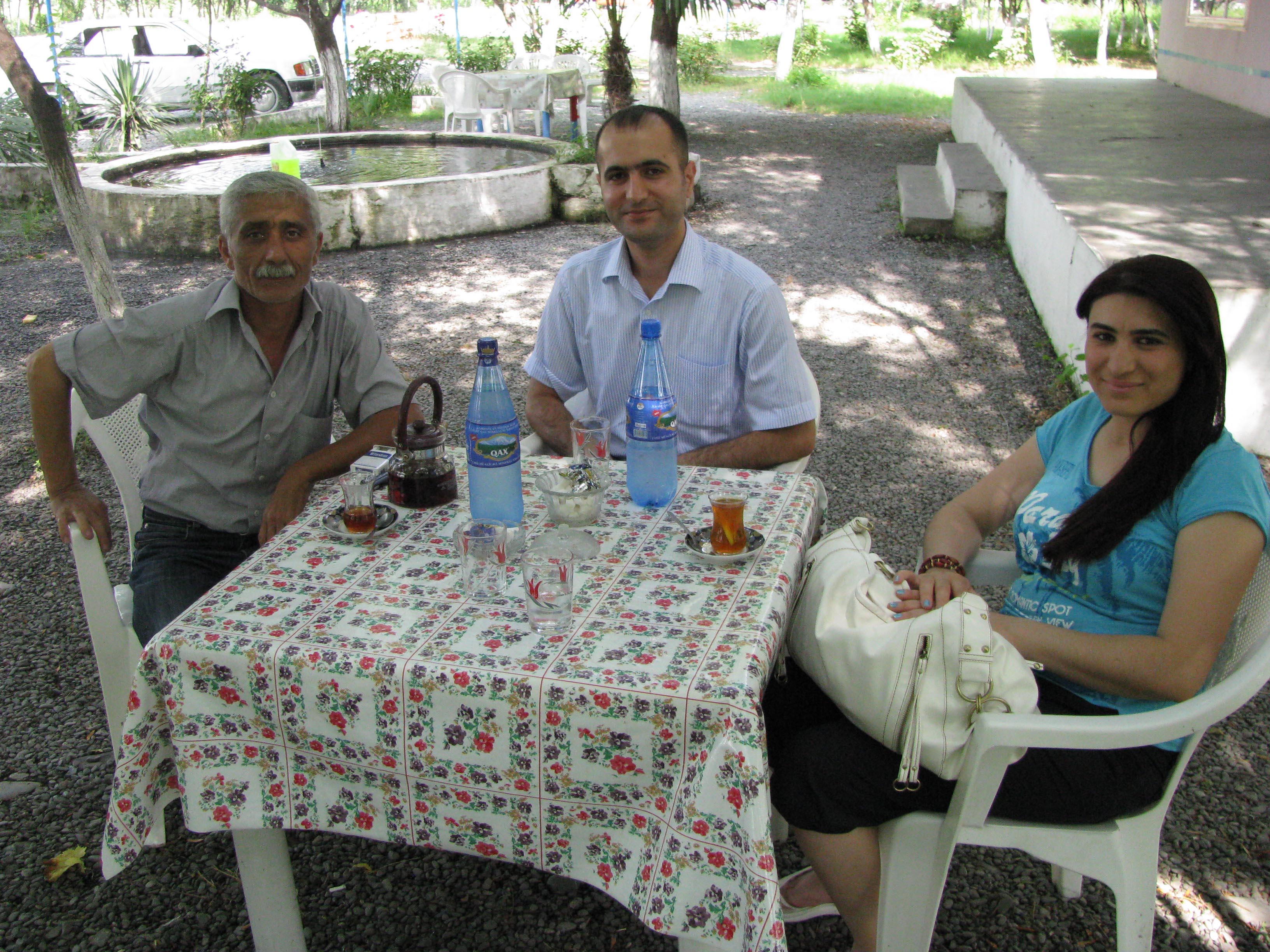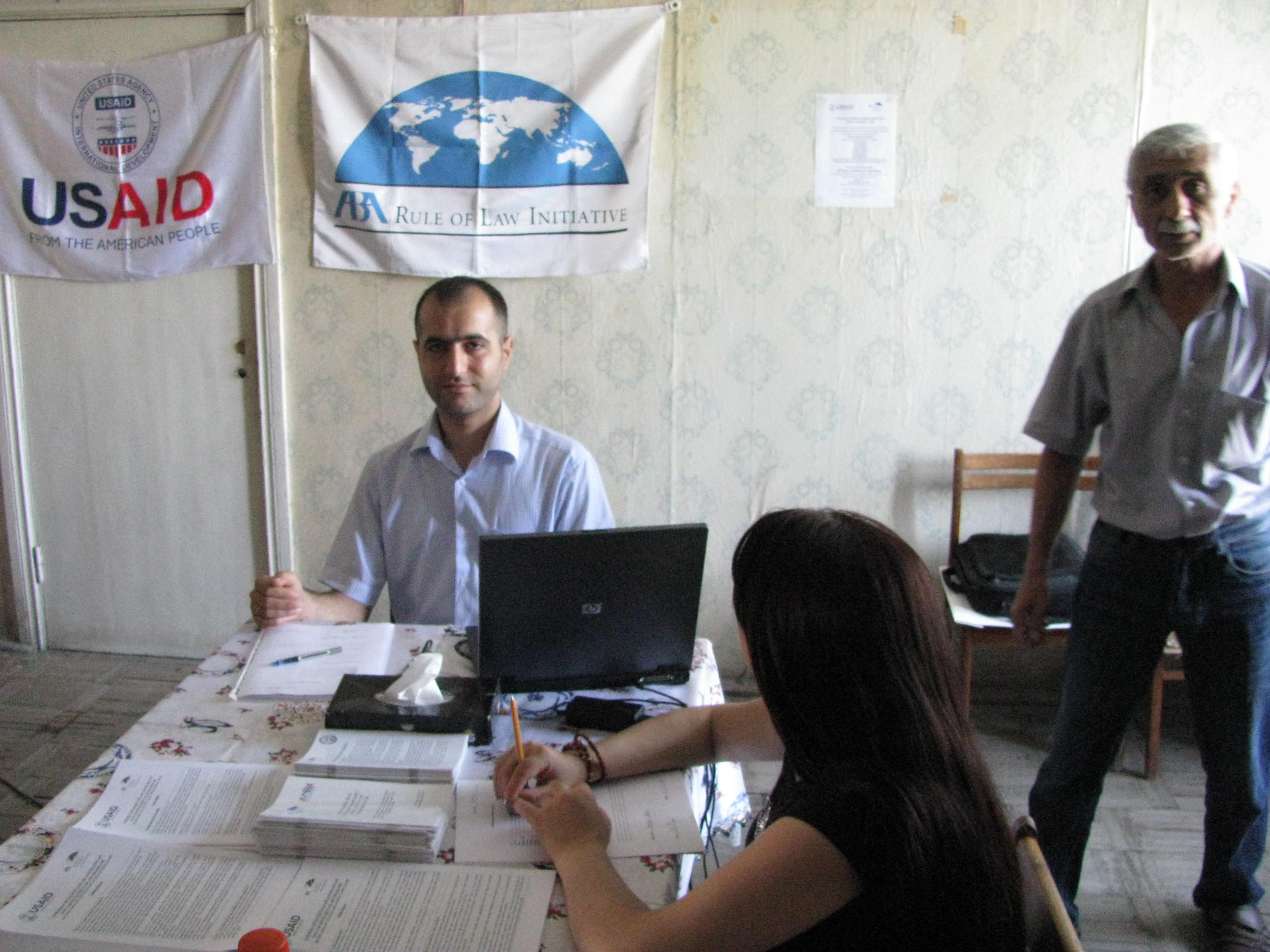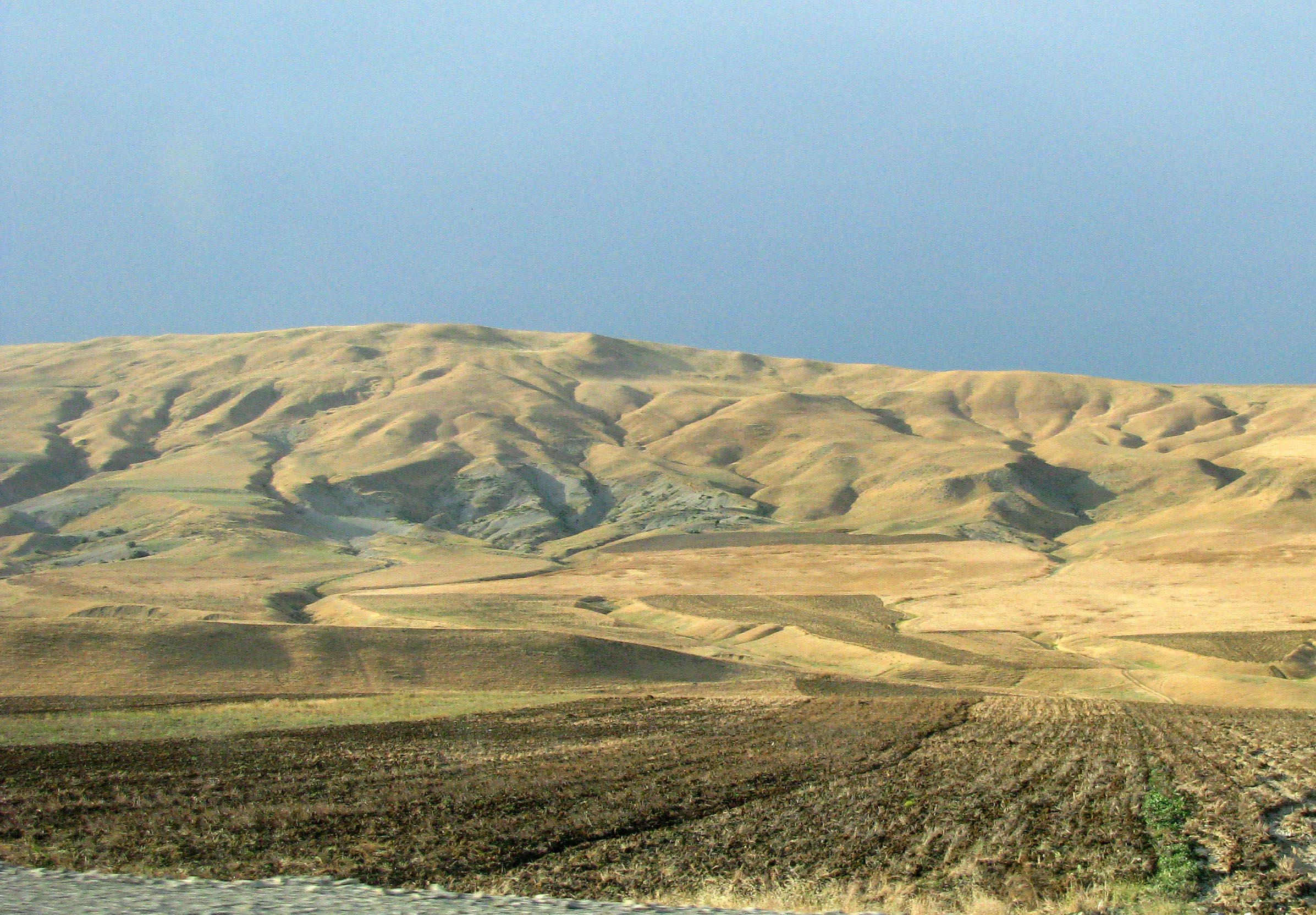Travelling Lawyers
One of the projects that the ABA Rule of Law Initiative runs is the Travelling Lawyers. Lawyers from the Baku office travel to a town in a more rural area to set up shop for a day giving free legal advice. These trips happen about twice a month, and the ABA works with local NGOs or government agencies working in the region in order to promote the visit in advance and to find an office place to hold the clinic.
Yesterday I had the privilege of going with two Travelling Lawyers out to the town of Barda, located in south central Azerbaijan, not far from the Nagorno-Karabakh border. We left the afternoon before: me, Elhan our talkative, silly, and slightly reckless driver, Azer, one of our program's main litigators, and Sara, a recent law school graduate who volunteers as a legal assistant in order to gain experience. The drive out was beautiful and really showed how diverse Azerbaijan's landscapes can be. We first passed through bleak desert, then scrubby hills, followed by forested mountains, and eventually ended up in flat farmland teeming with sheep, cows, and even water buffalos. We made several stops on the way, always making sure that it was in an outdoor cafe with a beautiful view (other amenities, like a toilet or AC were considered totally unimportant by my Azeri driver).


By early evening we were in Yevlax, where we spent the night, and then the next morning headed down to Barda. We were partnering with a small Barda non-profit that works with the disabled and orphans. Their office was barely an office - some dilapidated rooms in a Soviet looking government building, walls covered in mold and floor boards broken and scattered. But they were wonderfully enthusiastic and friendly, and seemed to be thrilled to have us there. Around 20 people came to see the travelling lawyers. Unfortunately, many of them were just out of work and asked if the lawyers could help them get a job. Azer, in a less than sympathetic way, would just tell them that this was a social problem, not a legal one, and send them on their way. I was surprised by the casual attitude taken towards these clients. No lawyer-client confidentiality in Azerbaijan, apparently; curious onlookers would stop in and even take pictures with their camera phones. Some clients, after their own meeting, would ask if they could just stay and listen to the next few clients, and sometimes they would even give these subsequent clients their own advice! In the end, a handful of people did get some advice that hopefully would be useful to them. One very elderly woman needed documents verifying her late husband's service in WWII in order to receive her pension money, and Azer explained what office she needs to visit and what she needs to bring, although I suspect a long wait and maddening bureaucracy await her.


Perhaps the best thing the Travelling Lawyers program does is just to get people accustomed to thinking about the law and showing them examples of lawyers who are accessible. Most people in the countryside of Azerbaijan have never seen a lawyer and would never even think of going to one; courts are seen as corrupt and a waste of time. While this may often be true, if people don't start to use the legal system and to expect more from it, it's doubtful that the situation will change much on its own.